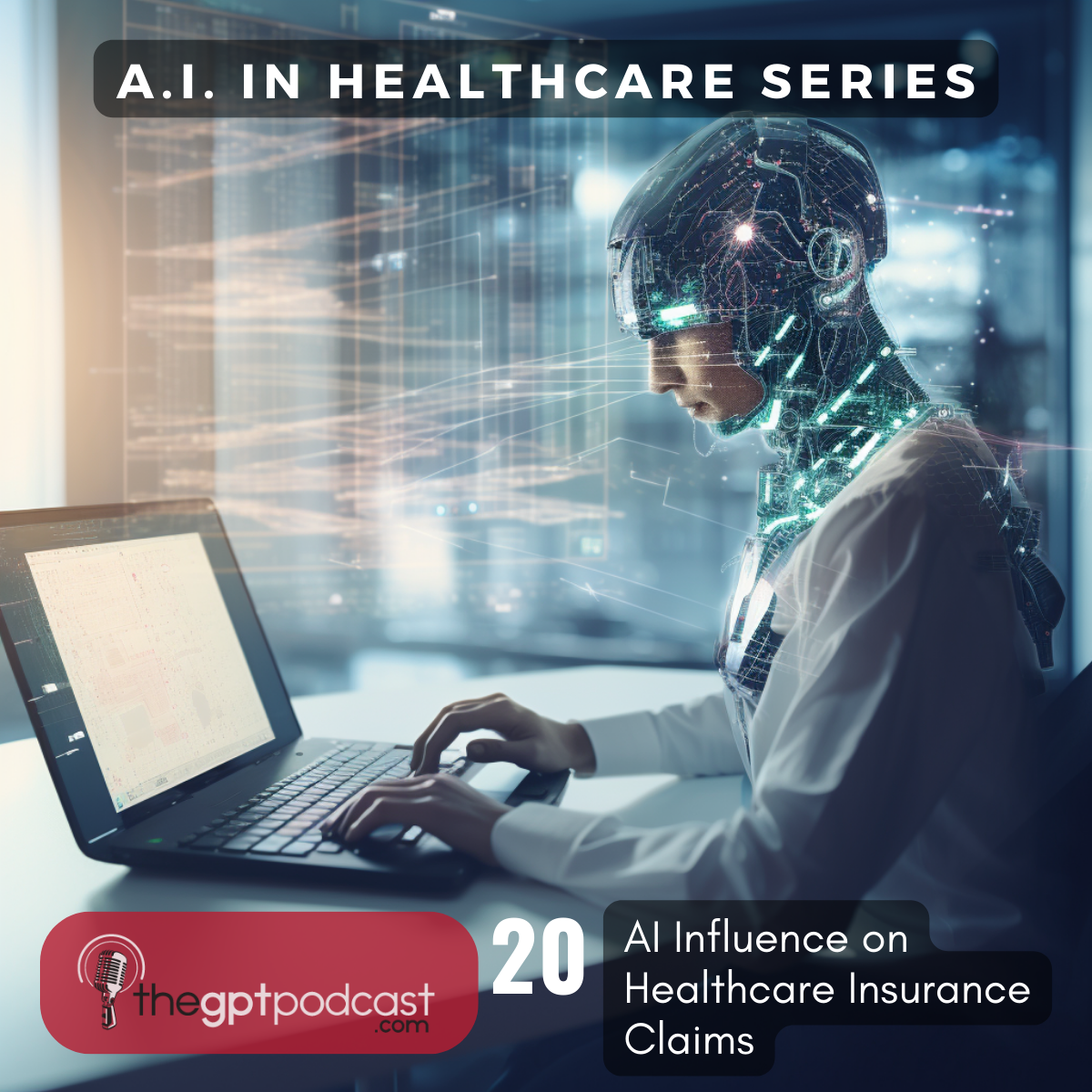AI Influence on Healthcare Insurance Claims
🎙️ On the GPT podcast, Dr. Harvey Castro discusses the use of AI in healthcare 💉. Its benefits include faster claim approvals and fraud detection. However, misuse can lead to unfair claim denials 😮. He cites an increasing number of insurance claim denials as a financial burden on hospitals 🏥.

On this episode, we delve into a key topic in our AI in Healthcare Series - the role of Artificial Intelligence (AI) in health insurance and its implications for patients and hospitals, as discussed recently on the GPT Podcast, hosted by Dr. Harvey Castro and Brooks.
AI is dramatically transforming the landscape of the US healthcare system. Highlighting its growing popularity among health insurers, Dr. Harvey elaborates on how AI can expedite claim approvals and detect potential signs of fraud. Yet, the technology's impact isn't limited to just the insurers. In fact, AI is set to revolutionize the entire healthcare ecosystem.
While AI represents a significant boon for insurers as it accelerates decision-making processes, the picture isn't entirely rosy. There have been instances of insurance companies misusing AI to influence decisions without necessary medical reviews. Dr. Harvey highlighted a case, wherein an insurance company faced a federal class action lawsuit due to a computer algorithm leading to an erroneous denial of hundreds of thousands of claims within a brief period.
Stepping into the realm of hospitals, the impact of AI cannot be overstated. Over the past three years, hospitals have witnessed an average 65% upswing in claim denials, which has severe financial repercussions. For an average-sized hospital, this could mean around 110,000 unpaid claims.
Yet, amidst this challenges, opportunities are rising. Many hospitals are waking up to the urgent need to upscale their tech capabilities. They are investing in AI and machine learning to meet the evolving demands of insurance processes. By sharpening the accuracy of their claim procedures, hospitals can save money and guard their revenue.
Not only do denial rates gradually decrease with AI investments, but hospitals can identify patterns and predict denials, making resolutions timely and efficient. This helps maintain a steady flow of payments and mitigates the risk of financial losses.
The implications of AI in healthcare extend to patients as well. Denial of claims can mount financial pressures on patients, negatively impacting their experiences. Collaborations between healthcare clinicians and tech firms that have already adopted AI investments could help alleviate this issue.
Notably, Knowtion Health, a tech-enabled service that aids hospitals in managing denials and improving account receivables, offers an example of successful leveraging of AI for more efficient denial management. With Knowtion leading the charge, many other healthcare clinicians too are prioritizing investments in similar technologies to better navigate the insurance process.
Looking at the broader picture, AI is transforming the healthcare sector at all levels - from patients to doctors, insurers, and hospitals. It’s reshaping the way we handle insurance claims, making the process faster, more transparent, and hopefully, more equitable. However, this demands hospitals and healthcare clinicians pivot to leverage AI capabilities.
As we continue exploring AI's impact in healthcare, stay tuned. It is definitely compelling us to rethink how healthcare functions and underlines that the evolution towards AI is not merely an option, but a demanding necessity.

